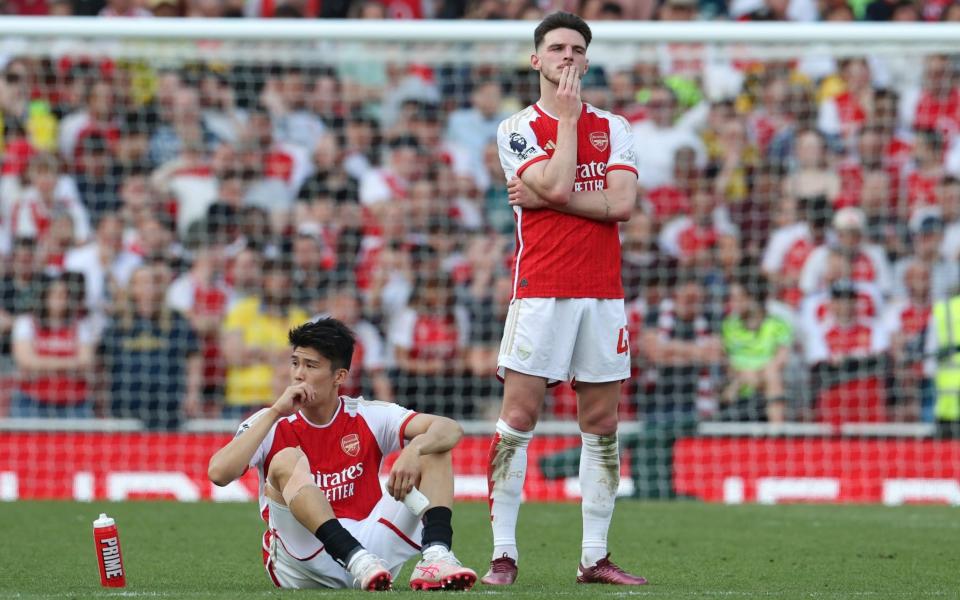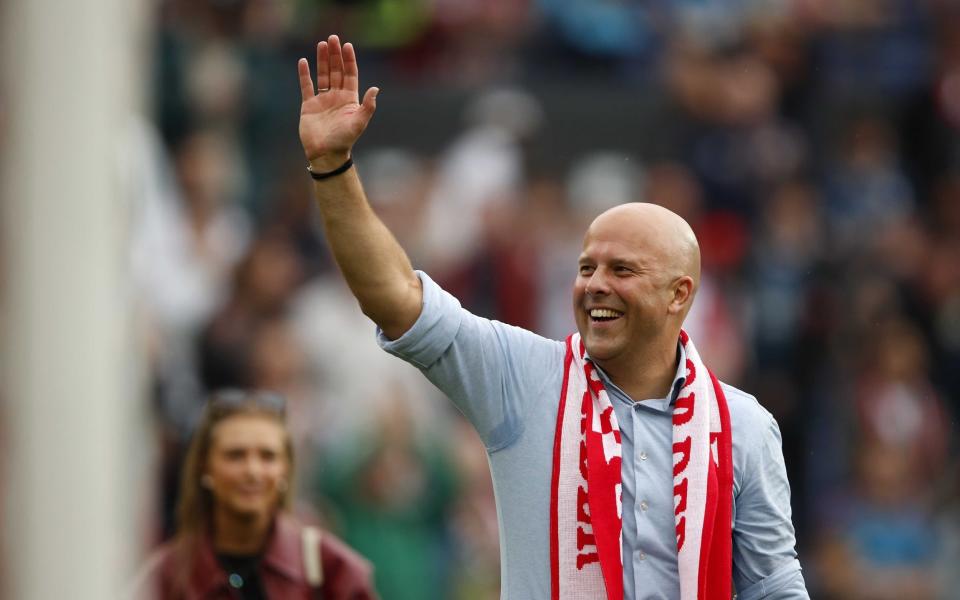Premier League has a competitive balance problem

For all the excitement and dramatic storylines that accompanied another Premier League season, is the lack of genuine plot twists sucking the life out of the most unpredictable league in the world?
There have been some wonderful games, with more goals scored than ever before in a 38-game season. The quality of the top teams is arguably higher than at any stage and no domestic league in the world has a higher concentration of world-class talent than England’s top division.
The noise and colour remain intact, the entertainment on a week-to-week basis remains enrapturing but when you dig below the surface you find a repetitive picture developingA with the same teams competing for the same positions.
The same top two as last season
Manchester City have now been champions in six out of the past seven years, with only Liverpool disrupting their monopoly. City lost only three league games all season and have not lost a match, other than on penalties to Real Madrid in the Champions League, since Dec 6.
Liverpool were once their closest challengers, twice runners-up as well as champions in 2020, which is the same number of times Arsenal have now finished second under Mikel Arteta. Arsenal, who only lost five league games this season, have closed the gap: they were five points adrift this time last year and only finished two points behind this term.
It appears safe to assume that it will be one of these two who will win the league in 2025, especially with Jurgen Klopp leaving Liverpool. Indeed, it will be a huge shock if anyone else gets close to them.

Seven of the same top eight
Perhaps the most seismic shift in the Premier League balance of power over the past two years is the fact the so-called “Big Six” should probably now be referred to as the “Big Eight”.
Just as Newcastle United did last season under Eddie Howe, Unai Emery’s Aston Villa have secured Champions League qualification, after finishing seventh last time around. Newcastle replaced them in seventh, but will earn European football again if City beat Manchester United in the FA Cup final.
Both clubs are backed by ambitious and wealthy owners and although profitability and sustainability rules give the six richest clubs an entrenched financial advantage, the gap is closing year on year as these two, historically large clubs, begin to pack a heavier punch commercially.
The only change in the clubs occupying the top eight this season is that Chelsea, who have spent well above £1 billion on players in the last four transfer windows since the takeover by Todd Boehly’s consortium in May 2022, replaced Brighton in sixth spot.
Mid-table has a familiar look
Crystal Palace epitomise the staleness of the mid-table pack. Every year they start the campaign knowing that making sure they avoid relegation is the first objective. That is pretty much all they achieve. Palace, although there is optimism under Oliver Glasner, have not qualified for Europe in the Premier League and are likely to lose at least one of their key players this summer, if not two.
Fulham are starting to look similar. They finished 10th last season and 13th in 2024. Bournemouth have given the impression of vast improvement under Andoni Iraola, but they were 15th under Gary O’Neil and have only risen three places to 12th under the Spaniard.
Everton would be alongside them had it not been for their points deduction and Wolves, who finished 13th last season, fall one spot. The only real dramatic alteration in the mid-table landscape is Brentford, who fell from an excellent ninth last season to 16th. Brentford, though, have one of the smallest budgets and were always going to struggle to repeat that feat.

Promoted sides relegated
This is possibly the bleakest situation of all. Most well placed pundits and observers predicted back in August that the three newly promoted clubs would be relegated back to the Championship and so it proved. Not only that, but Sheffield United, Burnley and Luton have occupied the bottom three positions virtually all season. Could it be that the gap between the Championship and the Premier League has widened further?

 Yahoo Sport
Yahoo Sport 






































